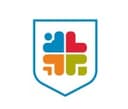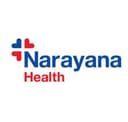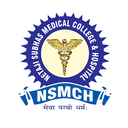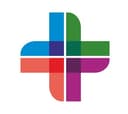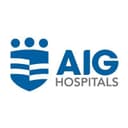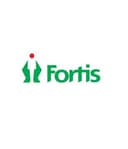Diploma in Rural Medical Care Provider (Valid for First AID Caring)
OR
Prepared by Docthub Courses Team ∣
Last updated on 30 May 2025
Overview
The Diploma in Rural Medical Care Provider program is designed to develop a multi-purpose healthcare workforce in rural territories. The course curriculum includes basic medical science, communication healthcare, government health policy, vaccination programs, and patient counseling.

Table of Content
What is a Diploma in Rural Medical Care Provider?
The Diploma in Rural Medical Care Provider is a healthcare qualification designed to prepare individuals for delivering emergency medical services in rural and underserved communities. This program trains students in fundamental first aid, basic life support, and general medical care skills. Graduates are capable of acting as the first point of contact during medical emergencies, offering life-saving assistance and stabilizing patients until they can reach a medical facility.
Full Form
The full form of CT5010 is the Diploma in Rural Medical Care Provider (Valid for First Aid Caring).
Highlights
| Particulars | Details |
| Course Name | Diploma in Rural Medical Care Provider (Valid for First Aid Caring) |
| Course Type | Diploma |
| Course Duration | 1 to 2 years |
| Eligibility | High school graduate (12th grade) or equivalent |
| Admission Process | - Complete application form - Meet eligibility criteria - Submit required documents - Entrance exam (if applicable) - Interview (if required) - Application fee (if applicable) |
| Fees | $500 to $2,000 (varies by institution and location) |
| Colleges in India | Institute of Rural Health Sciences All India Institute of Medical Sciences (AIIMS) National Institute of Rural Health (NIRH) |
| Job Roles | Rural Healthcare Provider Emergency Medical Technician (EMT) Disaster Relief Medical Worker First Aid Trainer Paramedic in rural areas |
Eligibility
To be eligible for the Diploma in Rural Medical Care Provider, candidates must meet the following criteria:
- Educational Requirements: A high school diploma (12th grade) with a preference for a background in science, though not mandatory.
- Age: Applicants should be at least 18 years old.
- Other Requirements: Basic healthcare knowledge may be beneficial, but prior experience is not necessary.
Duration
The duration of the Diploma in Rural Medical Care Provider typically ranges from 1 to 2 years, depending on the institution and the specific structure of the program. Some programs may offer part-time or online learning options for added flexibility.
Fees
The fees for the Diploma in Rural Medical Care Provider program can vary depending on the institution and location. On average, fees range from $500 to $2,000. Additional expenses may include textbooks, uniforms, and certification exams.
Who Should Pursue the Diploma in Rural Medical Care Provider?
This course is ideal for:
- Healthcare professionals interested in working in rural or remote healthcare settings.
- Paramedics and individuals with a healthcare background seeking to expand their skills in emergency care.
- First responders, such as police officers and firefighters, who want specialized training in medical care for rural areas.
- Anyone passionate about improving healthcare in underserved regions.
Why Study the Diploma in Rural Medical Care Provider?
Studying this diploma offers several benefits, including:
- Making a difference in underserved communities by providing first aid and emergency care in remote areas.
- Expanding career opportunities in rural healthcare, NGOs, and disaster relief operations.
- Gaining in-demand, practical skills in emergency care and patient stabilization.
- Creating a meaningful impact by saving lives and improving health outcomes in areas with limited medical resources.
Diploma in Rural Medical Care Provider Entrance Exam
Some institutions may require an entrance exam for admission to the Diploma in Rural Medical Care Provider program. The exam might assess:
- Basic knowledge of biology and human anatomy
- Problem-solving and decision-making in emergency medical situations
- General aptitude in healthcare-related topics
Admission Process
The typical admission process for this course includes:
- Completing an application form (online or offline) with personal, academic, and professional details.
- Meeting eligibility criteria and submitting the necessary documents (such as educational qualifications and identification).
- Taking an entrance exam (if required) or attending an interview.
- Paying the application fee (if applicable).
- Receiving an admission offer, followed by program preparation.
Diploma in Rural Medical Care Provider Syllabus
The curriculum generally covers the following core topics:
| Year/Semester | Core Topics Covered |
| Semester 1 | Introduction to Rural Healthcare Systems First Aid Fundamentals Basic Life Support (CPR and AED) Human Anatomy and Physiological Processes Health and Hygiene in Medical Emergencies Medical Instruments and Equipment Handling
|
| Semester 2 | Advanced First Aid and Emergency Procedures Pharmacology and Medication Management Health Assessment and Monitoring Vital Signs Medical Ethics and Professional Standards Disaster Response and Emergency Management Clinical Training and Rural Healthcare Practicum |
Top Diploma in Rural Medical Care Provider Colleges
Some well-known institutions offering the Diploma in Rural Medical Care Provider include:
- Institute of Rural Health Sciences (India)
- National Institute of Emergency Services (USA)
- Rural Medical Training Center (Australia)
- First Aid Training Academy (Canada)
Scope of the Diploma in Rural Medical Care Provider
Graduates of this diploma have various career opportunities in rural and remote regions. Possible job roles include:
- Rural healthcare provider in local clinics or community health centers.
- Emergency Medical Technicians (EMTs) or paramedics in rural emergency services.
- Medical staff in disaster relief organizations.
- First aid trainers for schools, businesses, and institutions.
Further Study Options
After completing the Diploma in Rural Medical Care Provider, students may opt for further education, including:
- Bachelor of Science in Nursing (BSN)
- Bachelor of Emergency Medical Services (EMS)
- Master of Public Health (MPH)
- Postgraduate certifications in advanced first aid or emergency medicine.
Career Opportunities After the Diploma in Rural Medical Care Provider
Graduates can pursue careers in various fields, such as:
- Rural healthcare centers and hospitals.
- Non-governmental organizations (NGOs) focused on healthcare and emergency services.
- Ambulance and emergency medical services.
- Disaster relief agencies providing medical care in crisis areas.
Salary
The salary of a Diploma in Rural Medical Care Provider graduate depends on factors such as experience, location, and type of employment. On average:
- Entry-level salary: $20,000 - $30,000 annually
- Experienced professionals: $40,000 - $50,000 annually
- Senior positions in healthcare administration or emergency services may offer higher salaries.
Quick Go Links

Related Job Roles
Community Health Worker
Related Job Vacancies
View All 26 Jobs

FAQS
What are the key responsibilities of a Rural Medical Care Provider?
A Rural Medical Care Provider delivers first aid and emergency care, stabilizing patients and providing primary medical treatment in remote areas until further medical help is available.
Is the Diploma in Rural Medical Care Provider recognized globally?
Recognition of the diploma may vary depending on the country. However, it is widely acknowledged in rural healthcare settings, emergency services, and NGOs
Do I need prior healthcare experience to pursue this diploma?
No prior healthcare experience is required. The program is open to individuals with a high school diploma, and it provides the necessary training.
What career options are available after completing this diploma?
Graduates can work in rural healthcare facilities, emergency medical services, disaster relief teams, or as first aid trainers.
How long does it take to complete the Diploma in Rural Medical Care Provider?
The duration of the course is typically between 1 and 2 years.
Related Course titles

Qualifications
12th Arts
12th Science PCB
Related Specialty
Community Health
Public Health
Rural Medicine
